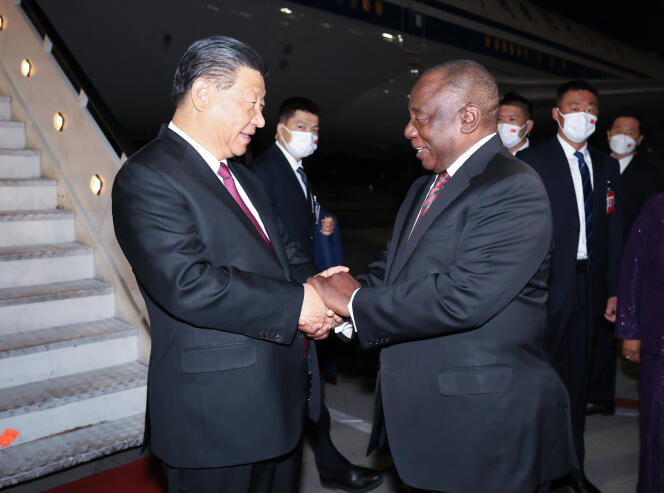
The 15th BRICS summit, an informal grouping of five major "emerging" nations whose only real common ground is their desire to provide an alternative to the international order still dominated by the planet's richest economies, opened in Johannesburg on Tuesday, August 22, with Vladimir Putin absent. With an arrest warrant issued against him by the International Criminal Court in March for war crimes, notably the deportation of Ukrainian children to Russia, the head of the Kremlin did not risk making the trip to South Africa. Formed in 2011, BRICS is an acronym of the first letters of the names of its five member nations: Brazil, Russia, India, China, and the host country, South Africa.
Despite the Russian president's conspicuous absence – a fact downplayed by national media, preferring to concentrate on his "involvement" from afar via videoconference – the summit is in keeping with the focus of Moscow's diplomatic agenda. That is, Russia's intention to deny any international isolation and to put forward a coalition of states that can match the Western bloc. The West's attempts at "preserving its own hegemony have an exactly opposite effect," argues Foreign Minister Sergey Lavrov, who visited Johannesburg, in an article published in the South African newspaper Ubuntu, in which he strongly praises the role of Russia, a "civilization State," in the formation of a "more just multipolar world order."
Representing 40% of the world's population and almost a quarter of the planet's GDP, the group of BRICS nations hold considerable demographic and economic clout − hence why they feel justified in joining forces against the "other side" – the United States, Europe and Japan. However, their political and ideological differences sometimes outweigh what unites them. The rivalry between India and China is one of the most blatant illustrations of the divisions within a group whose members have contrasting relations with the West.
Despite its long-standing close ties with Russia, India has become notably closer to the West in recent decades, while both China and Russia have clearly distanced themselves. As for Brazil, although President Lula da Silva has remained ambiguous over the war in Ukraine, he now professes that "Brazil loves everyone and everyone loves Brazil."
Divided opinions on expansion
Despite their different approaches, there has been some semblance of solidarity to date between the members of this "club of five." According to a number of experts in international relations, were it not for BRICS, Russia's current position would be much more complicated. The country has been offered significant diplomatic, financial and political support by India, South Africa, China and Brazil after its invasion of Ukraine – for reasons most definitely linked to their own interests.
You have 65.71% of this article left to read. The rest is for subscribers only.